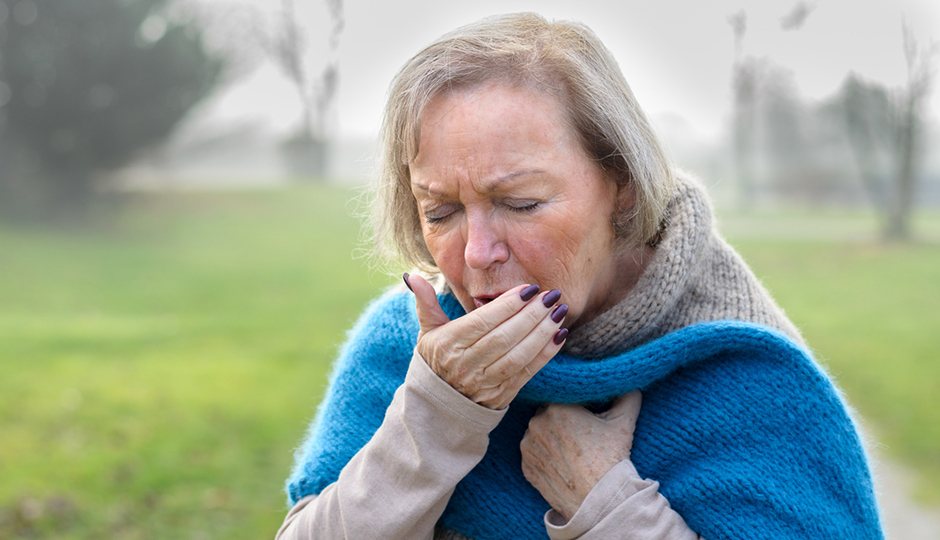Breathe Easy: 5 Tips for Protecting Your Lungs in Cold Weather

Photo credit: Getty Images
The leaves are changing color, Halloween decorations are going up, and sweater season is (almost) here. You know what that means: winter is coming.
Doctors see more patients during cold weather for coughs and respiratory issues than any other time of year.
“Although physicians and researchers are still trying to figure out why colds and flu tend to be seasonal, there’s a theory that people spend more time inside in the winter,” said Adnan Majid, MD, Chief of Interventional Pulmonology at Beth Israel Deaconess Medical Center. “When people are in closer proximity to each other, respiratory viruses can easily spread from person to person.”
Research also shows that cold and dry conditions allow viruses to stay suspended in the air longer than under other conditions. That is because droplets of moisture around them evaporate quickly, making the viruses lightweight. In the summer and during periods of warmer weather, heavier droplets fall to the ground where they are less likely to be inhaled.
So what are the best ways to protect your airways this fall and winter? Dr. Majid offers some tips.
- Wash your hands often. Germs spread through mucous membranes in our eyes, nose, and mouth. When viruses are on our hands and we touch our faces, you can almost guarantee a sick day or two from the office.
- Cover your nose and mouth with a scarf when going outside in the cold. Cold air is often dry air, and can irritate the airways of people with asthma, COPD, or bronchitis. This can cause wheezing, coughing, and shortness of breath.
- Dress warmly and keep yourself dry. Your mother was right; getting a chill can actually predispose you to pneumonia and other respiratory infections.
- Be careful about wood-burning fireplaces. Although it may seem like a great way to warm up, the smoke and fumes from fireplaces can be irritating to people with asthma, allergies, and other lung diseases.
- If you have asthma or COPD, always keep your inhaler nearby. As soon as you begin to experience difficulty breathing, stop what you’re doing and use your inhaler as you normally would.
For more information on how to combat the cold weather attack on your lungs, visit bidmc.org.
This is a paid partnership between Beth Israel Deaconess Medical Center and Boston Magazine


